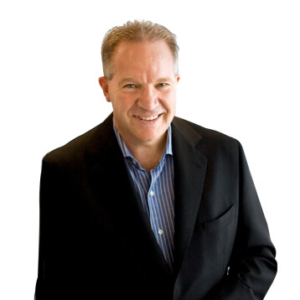Your future is your property. Because, by definition, it hasn’t happened yet, it only exists in your mind. Therefore, to be successful, and own your future, you must always make it bigger than your past.
When many people come to the natural end of their working life, they often believe they have a lot more past behind them than they do future ahead. At thirty-six, they’re thinking about the 25 to 30 working years ahead of them. When they get to sixty, they have five years left, and when they’re sixty-five, they have no future except enjoying their savings. In their mind, there’s no more future as far as work goes.
This is common for people who work in organizations where there’s mandatory retirement, but it shouldn’t be true for entrepreneurs.
Entrepreneurs don’t need to have that cut-off point.
The best entrepreneurs are always looking ahead at what’s possible.
However, something I’ve noticed is that while they have big goals when they get started, around the age of forty-five or fifty, there’s a huge drop-off in motivation and engagement with their work. This is because they’ve gotten to the end of the one big future they’ve planned, and now they’ve run out of future. But having a bigger future is not about how much time you have left; it’s about what you do with that time.
My ambition and motivation for business growth is incomparably bigger at age seventy-two than it was at age forty-seven, and that’s because I work on always having a future that’s bigger than my past.
Small steps keep you growing.
I tend to work in quarters because I believe that if you don’t accomplish certain key achievements in a 90-day period, you won’t have energy for these achievements after the 90-day period. This gets work done on a quarterly basis as well as a daily basis.
One of my guiding thoughts is, “Will the thing I’m doing today get bigger in the future?” Every day, I’m investing for a bigger payoff later.
Think in terms of long periods of time.
I also plan everything in 25-year periods. When I was seventy, I established a framework for thinking about my future in terms of how I was going to be when I was 95 years old. In my mind, I was going to be much more skilled, and the company was going to be much bigger.
I always expect the life ahead of me to be much bigger, more exciting, more motivating, more engaging, and more fascinating than anything I’ve achieved before.
This allows me to use my past as a tool to think about my future. Your past is not something to go back to—because you can’t—but, rather, something you can continually look at again for the lessons. If you can look at the things you’ve done and separate them from the actual experiences, you’ll find lessons that are applicable to your future.
Always maximize the value of your past as you move forward, and know that your past won’t become useful until you’re committed to having a future that’s even bigger.
